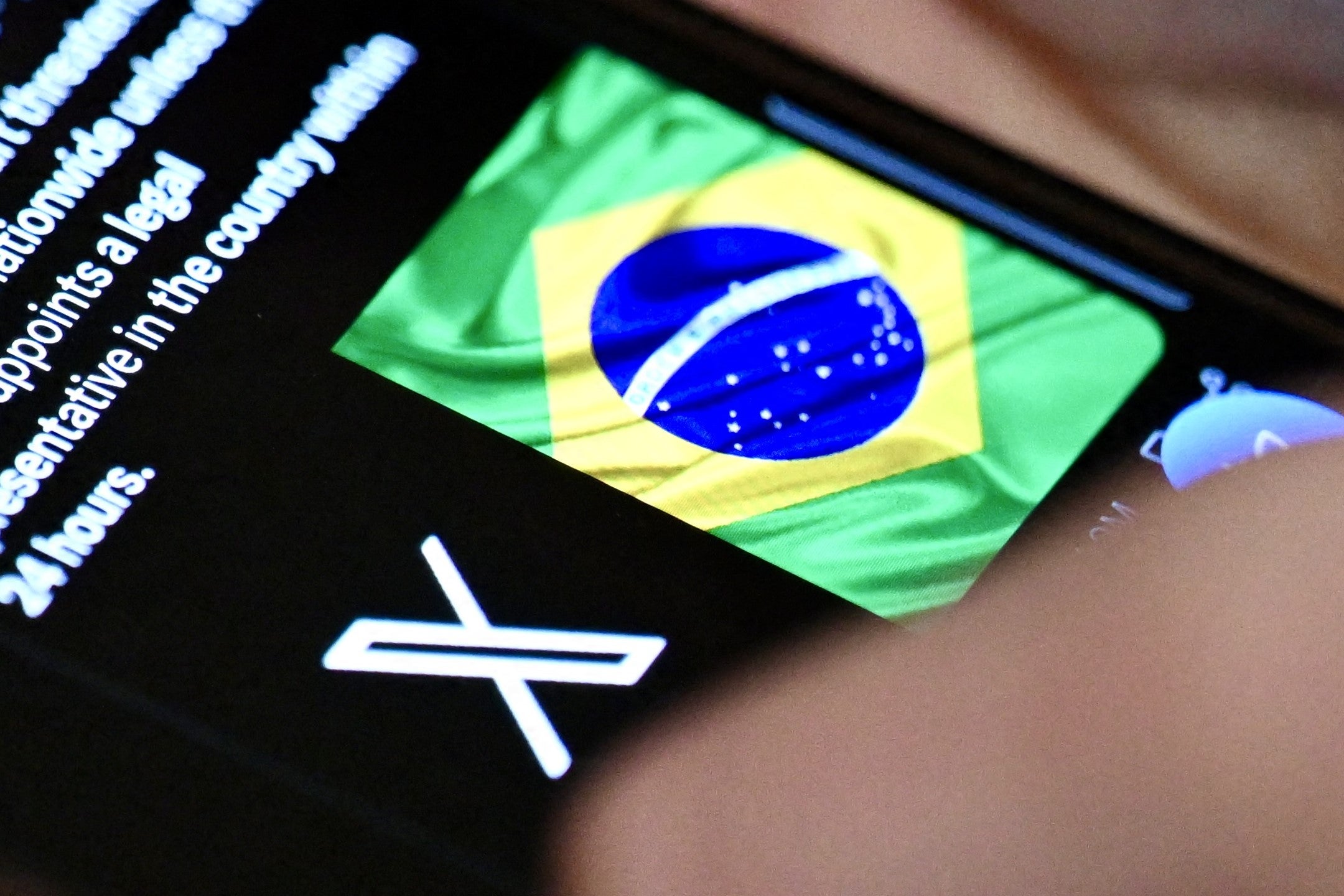Elon Musk’s Starlink finally complies with X ban in Brazil
Starlink relents after assets were frozen in the South American country

Elon Musk’s Starlink internet service has relented over a court order in Brazil to block access to the billionaire’s social media platform, X.
Starlink initially refused to comply with a Supreme Court justice’s order to prevent users from accessing the app, after it was banned in the country for failing to appoint a legal representative.
Starlink said in a statement posted on X on Tuesday that it will heed Justice Alexandre de Moraes' order despite him having frozen the company’s assets. Previously, it told the telecommunications regulator that it would not comply until Judge Moraes reversed course.
“Regardless of the illegal treatment of Starlink in freezing our assets, we are complying with the order to block access to X in Brazil,” the company statement said. “We continue to pursue all legal avenues, as are others who agree that @alexandre’s recent order violates the Brazilian constitution.”
Judge Moraes froze the company's accounts last week as a means to compel it to cover X’s fines that already exceeded $3m, reasoning that the two companies are part of the same economic group. Starlink filed an appeal, its law firm Veirano told the Associated Press on 30 August, but has declined to comment further in the days since.
Days later, the justice ordered the suspension of X for refusing to name a local legal representative, as required in order to receive notifications of court decisions and swiftly take any requisite action – particularly, in X's case, the takedown of accounts. A Supreme Court panel unanimously upheld the block on Monday, undermining efforts by Mr Musk and his supporters to cast the justice as an authoritarian renegade intent on censoring political speech in Brazil.
Had Starlink continued to disobey Judge Moraes by providing access, telecommunications regulator Anatel could eventually have seized equipment from Starlink’s 23 ground stations that ensure the quality of its internet service, Arthur Coimbra, an Anatel board member, said on a video call from his office in Brasilia.
The company has said it has more than 250,000 clients in Brazil, and it is particularly popular in the country's more remote corners where it is the only available option.
Already some legal experts questioned Judge Moraes’ basis for freezing Starlink’s accounts, given that its parent company SpaceX has no integration with X. Mr Musk noted on X that the two companies have different shareholder structures.
X has clashed with Judge Moraes over its reluctance to block users – mostly far-right activists accused of undermining Brazilian democracy and allies of former President Jair Bolsonaro – and has alleged that Judge Moraes wants an in-country legal representative so that Brazilian authorities can exert leverage over the company by having someone to arrest.
Mr Musk previously pledged to provide free internet access to Starlink users in Brazil after its bank accounts were frozen and it was unable to process financial transactions.
Anyone accessing X in Brazil currently faces a fine of 50,000 reais (£6,750).
Additional reporting from agencies.
Join our commenting forum
Join thought-provoking conversations, follow other Independent readers and see their replies
Comments
Bookmark popover
Removed from bookmarks